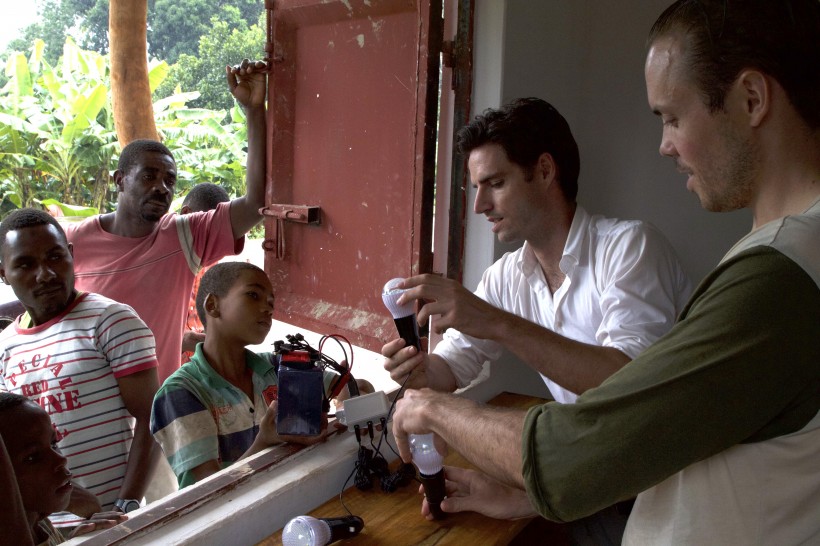Jaza Energy, an Atlantic Canadian company that helps to bring sustainable electricity to African villages, has raised $750,000 in equity funding to help it increase installations.
The company said over the weekend it received $100,000 from the New Brunswick Innovation Foundation, and $100,000 from members of the Maple Leaf Angels network, the largest network of angel investors in Toronto. The remaining $550,000 came from private investors. Jaza has also secured $450,000 in additional funding from the Atlantic Canada Opportunities Agency.
NBIF had previously invested in Jaza Energy in 2016, as part of an initial $226,000 round.
Founded in 2015 by Jeff Schnurr and Sebastian Manchester, Jaza Energy sets up central charging stations in African villages that have never had electricity. Like another New Brunswick company, Mbissa Energy, it aims to provide people with enough sustainable power for lights and phones, so their businesses can operate more efficiently and their children can study after dark.
The company, which was one of the 20 tech companies named to the Canadian Innovation Exchange last year, is now using the money to continue its mission of connecting 1 million households to electricity within five years.
“This is a huge milestone for us here at Jaza,” said Schnurr. “We’ve got a great group of investors ready to help us take the company to the next level. Our team is now head down working on both our hardware and our approach to getting more and more customers electrified.”
Read Our Recent Coverage of Mbissa Energy
The funding is the latest step in a company that began when Schnurr was working on a not-for-profit organization in Tanzania that planted trees in a reforestation effort. He had been working on this project for several years when a woman said to him, “Trees are great, but where can I recharge my cell phone?” Schnurr realized the greatest social good he could perform would be to help bring electricity to people’s homes.
The company is now establishing central hubs in villages that produce sustainable electricity using solar power. Each station allows as many as 100 households to come and recharge batteries for their homes. The customers pay up front for the batteries, which can be swapped out and carried home, and last for about 40 hours. It means they no longer have to burn kerosene lamps at night or travel to other jurisdictions to charge their phones.
Schnurr said only about 5 percent of the people in rural Tanzania have access to electricity, and that there are an estimated 1.2 million people globally that don’t have electricity.
So far the company has operations in Tanzania, which Schnurr describes as its “launch market.” Jaza hopes to bring in neighbouring countries as early as next year.
Asked where his employees are based, Schnurr thought for a moment and said Jaza has an office in Sackville, N.B., engineers in Halifax and about 11.5 employees in Tanzania. “When you’re working across so many cultures and so many people, geography is just an idea,” he added.
In Tanzania, the company hires only women as technicians staffing the charging stations. “It’s a pretty interesting paradigm because girls now grow up in these communities thinking, ‘Hey my dad’s a fisherman and my mum is a technologist in the energy station.’”
With the new funding, Schnurr and Manchester hope to accelerate their installations and eventually move into direct hookups to people’s homes.
“The beautiful thing about the price of solar now is that it’s the cheapest way for us to do it,” he said, adding that it’s great that the first wave of electricity in these villages is from a sustainable source. “It’s really just the perfect time in history for us to do this.”
Disclosure: NBIF and ACOA are clients of Entrevestor.










